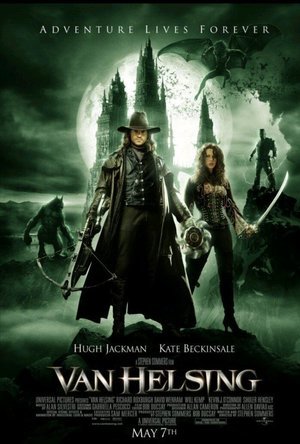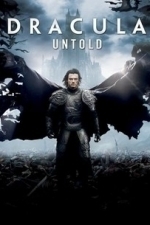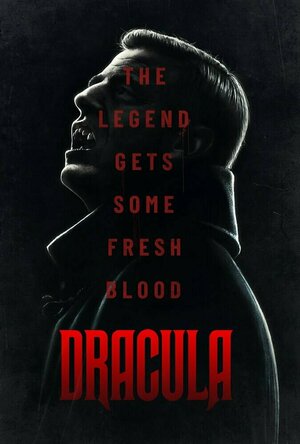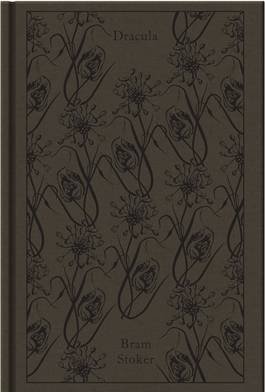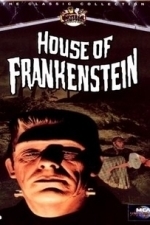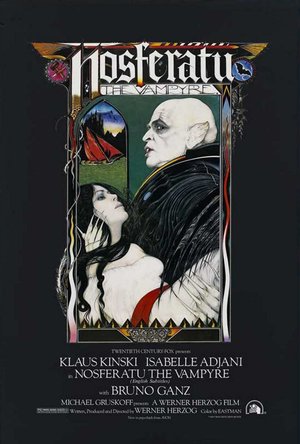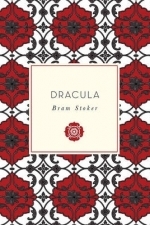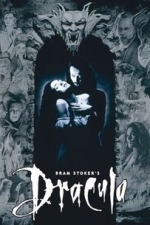Search
Search results
Matthew Krueger (10051 KP) rated Van Helsing (2004) in Movies
May 14, 2021
Adventure Lives Forever
Van Helsing- tired to atempt starting a universe that didnt happen. Tired to start a franchise/spin-offs that didnt happen. But other than that its good. Hugh Jackman is good as Van Helsing.
The plot: Famed monster slayer Gabriel Van Helsing (Hugh Jackman) is dispatched to Transylvania to assist the last of the Valerious bloodline in defeating Count Dracula (Richard Roxburgh). Anna Valerious (Kate Beckinsale) reveals that Dracula has formed an unholy alliance with Dr. Frankenstein's monster (Shuler Hensley) and is hell-bent on exacting a centuries-old curse on her family. Together Anna and Van Helsing set out to destroy their common enemy, but uncover some unsettling secrets along the way.
Its a good film.
The plot: Famed monster slayer Gabriel Van Helsing (Hugh Jackman) is dispatched to Transylvania to assist the last of the Valerious bloodline in defeating Count Dracula (Richard Roxburgh). Anna Valerious (Kate Beckinsale) reveals that Dracula has formed an unholy alliance with Dr. Frankenstein's monster (Shuler Hensley) and is hell-bent on exacting a centuries-old curse on her family. Together Anna and Van Helsing set out to destroy their common enemy, but uncover some unsettling secrets along the way.
Its a good film.
Emma Tucker (52 KP) rated Salem's Lot in Books
Sep 14, 2017
I was definitely expecting witches when I saw the title of the book but was pleasantly surprised by vampires :P I love the extremely aware links it makes towards Dracula. The characters are also superb. Yet again somehow Stephen king manages to include so many characters whilst still holding onto the story and no confusion. I was absolutely gripped.
Dork_knight74 (881 KP) rated Dracula Untold (2014) in Movies
Mar 10, 2019
Nicely done.
Finally got to watch this one. I really enjoyed this take on the Dracula legend. The acting was good and the cinematography and effects were great. Dark and foreboding, as it should be. The story was a little predictable in some parts but definitely kept the interest and entertained thoroughly. This one is definitely worth a watch.
Erika (17788 KP) rated Dracula in TV
Jan 18, 2020
I have extremely mixed feelings about this new iteration of Dracula. At some points, I really liked it, and others I found it a slog. But, I was compelled to finish it within 24 hours.
I think my biggest problem was the pacing of it all. It seemed rough and uneven. It was all pretty predictable, the 'twists' weren't very twisty.
The thing I liked the most was the snark from Dracula, it was entertaining. I was also thrilled (no sarcasm), that Mina wasn't a huge part of the story, and that Lucy didn't appear until the end.
I don't even know whether to recommend this or not to people. I guess if you have 4 1/2 hours to spare and you like vamps, you'd most likely be entertained.
I think my biggest problem was the pacing of it all. It seemed rough and uneven. It was all pretty predictable, the 'twists' weren't very twisty.
The thing I liked the most was the snark from Dracula, it was entertaining. I was also thrilled (no sarcasm), that Mina wasn't a huge part of the story, and that Lucy didn't appear until the end.
I don't even know whether to recommend this or not to people. I guess if you have 4 1/2 hours to spare and you like vamps, you'd most likely be entertained.
The Bandersnatch (199 KP) rated Dracula in Books
Nov 7, 2019
Dracula was written by author Bram Stoker during the late 1890's and is set around the character of Dracula and his attempt to move from Transylvania to England so he can spread the curse of the undead (I.e. the creation of more vampires). English solicitor Jonathan Harker who'd originally gone to Transylvania to be legal aide for Dracula stops him with the help of Van Helsing and others which ends the life of one of them – Quincey-, the book ends with a note from Jonathan Harker that several people lived happily married and Jonathan has a son nicknamed for Quincey.
Dracula was published in London in May 1897 by Archibald Constable & Company and was later copyrighted in the U.S in 1899 and published by Doubleday & McClure of New York. Despite having decent praise form reviewers it wasn't an immediate bestseller. Although the English newspaper the Daily Mail ranked Stoker's writing prowess in Dracula above that of Mary Shelly, Edgar Allen Poe and Emily Bronte's Wuthering heights. Unfortunately it didn't make Stoker that much money and he'd had to petition for a compassionate grant from the royal literary fund. When he died his widow was forced to sell his notes and outlines of the book at an auction in 1913. It was the unauthorised adaption of Nosferatu by F. W. Murnau in 1922 and the resulting legal battle made when Stokers widow took affront that the novels popularity began to grow.
Before writing Dracula Bram Stoker had been researching European folklore and stories of vampires having been most influenced by Emily Gerard's “Transylvania Superstitions” 1885 essay...which included content about the vampire myth. Some historians insist that Vlad iii Dracula (More commonly known as Vlad the impaler) was the model for Stokers count but there's been no supporting evidence to make that true. According to one expert Stoker only borrowed the barest minimum of information of the Wallachian tyrant and he's not even mentioned in Stokers notes. Stoker was a member of the London library during the 1890's where books by Sabine Baring-Gould, Thomas Browne, AF Crosse and Charles Boner are attributed to Stokers research. Stoker would later claim he'd had a nightmare caused by over-eating crab meat about a “Vampire king” rising from his grave. Whitby on the Yorkshire coast contributed its landscape since Bram Stoker often holidayed there during the summer.
Dracula wasn't Stokers first choice as title for the story since he cycled through The Dead Un-Dead then simply the Un-Dead the count wasn't even supposed to be Count Dracula having had the name Count Wampyr for several drafts before Stoker became intrigued by the name Dracula. After reading “An account of the principles of Wallachia and Moldavia with political observations relative to them” written by author William Wilkinson (Published in 1820). the descendants of Vlad ii of Wallachia took the name Dracula or Dracul after being invested in the Order of the Dragon in 1431. In the old Romanian language the word Dracul mean “the Dragon” and Dracula meant “Son of the Dragon”. Nowadays however Dracul means “the Devil”
Whilst Dracula is known as THE Vampire novel its not the first. Johan Wolfgang Von Goethe had his book the Bride of Corinth published in 1797, 1871's Carmilla (a story about a lesbian vampire) was written by Sheridan Le Frau and James Malcolm Rymer's penny dreadful series Venny the Vampire was a product from the mid Victorian period. Even John Polidori created an image of a vampyric aristocrat in his 1819 story The Vampyre when he spent a summer with Merry Shelly (creator of Frankenstein) and her poet husband Percy Bysshe Shelly and Lord Bryon in 1816.
I really love Dracula. It showed the madness, the ethereal quality and the ultimate danger of what a vampire could do. Like many other goth inclined teenagers trying to find their feet in the world Dracula definitely added its two cents to my self worth and love of all things macabre. The fact it was written by a Victorian writer has added a unusual depth to the story as only a Victorian writer could. The culture of the Vampire has become deep rooted and wide spread in its acceptance and Dracula has definitely spearheaded such a phenomenon.
Abraham “Bram” Stoker was Born in Dublin, Ireland on the 8th of November 1847, He was the third of seven children born to Abraham and Charlotte Stoker and was bedridden with an unknown illness until he recovered at seven. He started schooling at a private school run by the Reverend William Woods and grew up without serious illness. Stoker excelled at sports at Trinity College Dublin having graduated in 1870 with a BA (Bachelor of Arts). He was an Auditor of the College Historical Society and the president of the University Philosophical Society where his first paper was on Sensationalism in fiction and society.
Thanks to his friend Dr. Maunsell, Stoker became interested in the theatre as a student and whilst working for the Irish civil service he became a theatre critic for the Dublin evening mail where he attracted notice for the quality of his reviews. Stoker gave a favourable review of Henry Irving's adaption of Hamlet in December 1876, this prompted Irving to invite him to dinner where they ended up becoming friends. Stoker wrote The Crystal Cup which was published by the London society in 1872 and The chain of Destiny which was released in four parts in the Shamrock. Stoker also wrote the non-fiction book the duties of clerks of petty sessions in Ireland which was published in 1879.
Bram stoker married Florence Balcombe the daughter of a lieutenent-colonel in 1978 and they moved to London. Where Stoker ended up the Business manager of the Lyceum theatre as well as manager for Henry Irving- a position he held for 27 years. Despite being a very busy man Stoker ended up writing several novels (as well as Dracula) Including The Snakes pass in 1890, the lady of the shroud in 1909 and the lair of the white worm in 1911. when Henry Irving died in 1906 he published his personal reminiscences of Henry Irving. Stoker also managed productions at the Prince of Wales theatre.
Bram stoker died after a series of strokes in London on April 20th 1912, the cause of death is split between the possibility of Tertiary Syphilis or overwork. He was cremated and was placed in a display urn at Golders Green Crematorium in North London, he was later joined by the ashes of his Son Irving Noel Stoker in 1961, his wife Florence was meant to join them but her ashes were scattered at the Gardens of rest.
Stoker was honoured with a Google Doogle (the banner on goggles homepage) on November 8th 2012 commemorating the 165th anniversary of his birth. An annual festival in honour of Bram Stoker happens in Dublin, its supported by the Bram stoker estate and was/is usually funded by Dublin City Council and Failte Ireland.
My opinion of Bran stoker is that of a decent hard working man who loved life. Stoker epitomises the phrases of “a man on a mission” and “a man who hussles”. Having worked extremely hard both creatively as a novelist and business wise as a theatre manager Stoker pretty much showed that if you work hard you could pretty much do anything you set your mind to.
And there you have it a book for all the ages, definitely under the banner of AWESOME!!!.
Dracula was published in London in May 1897 by Archibald Constable & Company and was later copyrighted in the U.S in 1899 and published by Doubleday & McClure of New York. Despite having decent praise form reviewers it wasn't an immediate bestseller. Although the English newspaper the Daily Mail ranked Stoker's writing prowess in Dracula above that of Mary Shelly, Edgar Allen Poe and Emily Bronte's Wuthering heights. Unfortunately it didn't make Stoker that much money and he'd had to petition for a compassionate grant from the royal literary fund. When he died his widow was forced to sell his notes and outlines of the book at an auction in 1913. It was the unauthorised adaption of Nosferatu by F. W. Murnau in 1922 and the resulting legal battle made when Stokers widow took affront that the novels popularity began to grow.
Before writing Dracula Bram Stoker had been researching European folklore and stories of vampires having been most influenced by Emily Gerard's “Transylvania Superstitions” 1885 essay...which included content about the vampire myth. Some historians insist that Vlad iii Dracula (More commonly known as Vlad the impaler) was the model for Stokers count but there's been no supporting evidence to make that true. According to one expert Stoker only borrowed the barest minimum of information of the Wallachian tyrant and he's not even mentioned in Stokers notes. Stoker was a member of the London library during the 1890's where books by Sabine Baring-Gould, Thomas Browne, AF Crosse and Charles Boner are attributed to Stokers research. Stoker would later claim he'd had a nightmare caused by over-eating crab meat about a “Vampire king” rising from his grave. Whitby on the Yorkshire coast contributed its landscape since Bram Stoker often holidayed there during the summer.
Dracula wasn't Stokers first choice as title for the story since he cycled through The Dead Un-Dead then simply the Un-Dead the count wasn't even supposed to be Count Dracula having had the name Count Wampyr for several drafts before Stoker became intrigued by the name Dracula. After reading “An account of the principles of Wallachia and Moldavia with political observations relative to them” written by author William Wilkinson (Published in 1820). the descendants of Vlad ii of Wallachia took the name Dracula or Dracul after being invested in the Order of the Dragon in 1431. In the old Romanian language the word Dracul mean “the Dragon” and Dracula meant “Son of the Dragon”. Nowadays however Dracul means “the Devil”
Whilst Dracula is known as THE Vampire novel its not the first. Johan Wolfgang Von Goethe had his book the Bride of Corinth published in 1797, 1871's Carmilla (a story about a lesbian vampire) was written by Sheridan Le Frau and James Malcolm Rymer's penny dreadful series Venny the Vampire was a product from the mid Victorian period. Even John Polidori created an image of a vampyric aristocrat in his 1819 story The Vampyre when he spent a summer with Merry Shelly (creator of Frankenstein) and her poet husband Percy Bysshe Shelly and Lord Bryon in 1816.
I really love Dracula. It showed the madness, the ethereal quality and the ultimate danger of what a vampire could do. Like many other goth inclined teenagers trying to find their feet in the world Dracula definitely added its two cents to my self worth and love of all things macabre. The fact it was written by a Victorian writer has added a unusual depth to the story as only a Victorian writer could. The culture of the Vampire has become deep rooted and wide spread in its acceptance and Dracula has definitely spearheaded such a phenomenon.
Abraham “Bram” Stoker was Born in Dublin, Ireland on the 8th of November 1847, He was the third of seven children born to Abraham and Charlotte Stoker and was bedridden with an unknown illness until he recovered at seven. He started schooling at a private school run by the Reverend William Woods and grew up without serious illness. Stoker excelled at sports at Trinity College Dublin having graduated in 1870 with a BA (Bachelor of Arts). He was an Auditor of the College Historical Society and the president of the University Philosophical Society where his first paper was on Sensationalism in fiction and society.
Thanks to his friend Dr. Maunsell, Stoker became interested in the theatre as a student and whilst working for the Irish civil service he became a theatre critic for the Dublin evening mail where he attracted notice for the quality of his reviews. Stoker gave a favourable review of Henry Irving's adaption of Hamlet in December 1876, this prompted Irving to invite him to dinner where they ended up becoming friends. Stoker wrote The Crystal Cup which was published by the London society in 1872 and The chain of Destiny which was released in four parts in the Shamrock. Stoker also wrote the non-fiction book the duties of clerks of petty sessions in Ireland which was published in 1879.
Bram stoker married Florence Balcombe the daughter of a lieutenent-colonel in 1978 and they moved to London. Where Stoker ended up the Business manager of the Lyceum theatre as well as manager for Henry Irving- a position he held for 27 years. Despite being a very busy man Stoker ended up writing several novels (as well as Dracula) Including The Snakes pass in 1890, the lady of the shroud in 1909 and the lair of the white worm in 1911. when Henry Irving died in 1906 he published his personal reminiscences of Henry Irving. Stoker also managed productions at the Prince of Wales theatre.
Bram stoker died after a series of strokes in London on April 20th 1912, the cause of death is split between the possibility of Tertiary Syphilis or overwork. He was cremated and was placed in a display urn at Golders Green Crematorium in North London, he was later joined by the ashes of his Son Irving Noel Stoker in 1961, his wife Florence was meant to join them but her ashes were scattered at the Gardens of rest.
Stoker was honoured with a Google Doogle (the banner on goggles homepage) on November 8th 2012 commemorating the 165th anniversary of his birth. An annual festival in honour of Bram Stoker happens in Dublin, its supported by the Bram stoker estate and was/is usually funded by Dublin City Council and Failte Ireland.
My opinion of Bran stoker is that of a decent hard working man who loved life. Stoker epitomises the phrases of “a man on a mission” and “a man who hussles”. Having worked extremely hard both creatively as a novelist and business wise as a theatre manager Stoker pretty much showed that if you work hard you could pretty much do anything you set your mind to.
And there you have it a book for all the ages, definitely under the banner of AWESOME!!!.
Matthew Krueger (10051 KP) rated House of Frankenstein (1944) in Movies
Jun 18, 2020 (Updated Jun 18, 2020)
Get The Gang All Together: The Crossover
House of Frankenstein- is the ultimate monster crossover. It has Frankenstein, Dracula played by John Carradine, the Hunchback and the Wolf-Man played by Lon Chaney Jr. and a mad scientist played by Boris Karloff.
This "monster rally" approach would continue in the following film, House of Dracula, as well as the 1948 comedy Abbott and Costello Meet Frankenstein.
The plot: After escaping from prison, the evil Dr. Niemann (Boris Karloff) and his hunchbacked assistant, Daniel (J. Carrol Naish), plot their revenge against those who imprisoned them. For this, they recruit the powerful Wolf Man (Lon Chaney), Frankenstein's monster (Glenn Strange) and even Dracula himself (John Carradine). Niemann pursues those who wrong him, sending each monster out to do his dirty work. But his control on the monsters is weak at best and may prove to be his downfall.
Frankenstein Meets the Wolf Man (1943) had been the first on-screen pairing of two Universal Studios monsters, but The House of Frankenstein was the first multi-monster movie. Early drafts of the story reportedly involved more characters from the Universal stable, including the Mummy, the Ape Woman, the Mad Ghoul, and possibly the Invisible Man. Working titles—which included Chamber of Horrors (a reference to Lampini's travelling horror show) and The Devil's Brood—emphasized the multi-monster nature of the story.
The multi-monster approach, which emphasized box office appeal over continuity, was used in House of Dracula the following year and later in Abbott and Costello Meet Frankenstein. The House of Frankenstein marked Glenn Strange's debut as the monster. Strange, a former cowboy, had been a minor supporting player in dozens of low-budget Westerns over the preceding 15 years. He reprised the role in House of Dracula and Abbott and Costello Meet Frankenstein, and cemented the popular image of the monster as shambling, clumsy, and inarticulate. Boris Karloff, who had moved on from playing the monster to playing the mad scientist, reportedly coached Strange on how to play the role.
Some continuity errors are evident in the finished film. After Dracula is thrown from the carriage, he looks over to where his coffin has landed; in a close-up, part of his mustache is gone. Also, when Talbot transforms into the Wolf Man for the final time, his hands lack fur.
Karloff's performance in this film is his last in Universal's classic horror cycle.
Its a fun entertaining movie starring the uninversal monsters.
This "monster rally" approach would continue in the following film, House of Dracula, as well as the 1948 comedy Abbott and Costello Meet Frankenstein.
The plot: After escaping from prison, the evil Dr. Niemann (Boris Karloff) and his hunchbacked assistant, Daniel (J. Carrol Naish), plot their revenge against those who imprisoned them. For this, they recruit the powerful Wolf Man (Lon Chaney), Frankenstein's monster (Glenn Strange) and even Dracula himself (John Carradine). Niemann pursues those who wrong him, sending each monster out to do his dirty work. But his control on the monsters is weak at best and may prove to be his downfall.
Frankenstein Meets the Wolf Man (1943) had been the first on-screen pairing of two Universal Studios monsters, but The House of Frankenstein was the first multi-monster movie. Early drafts of the story reportedly involved more characters from the Universal stable, including the Mummy, the Ape Woman, the Mad Ghoul, and possibly the Invisible Man. Working titles—which included Chamber of Horrors (a reference to Lampini's travelling horror show) and The Devil's Brood—emphasized the multi-monster nature of the story.
The multi-monster approach, which emphasized box office appeal over continuity, was used in House of Dracula the following year and later in Abbott and Costello Meet Frankenstein. The House of Frankenstein marked Glenn Strange's debut as the monster. Strange, a former cowboy, had been a minor supporting player in dozens of low-budget Westerns over the preceding 15 years. He reprised the role in House of Dracula and Abbott and Costello Meet Frankenstein, and cemented the popular image of the monster as shambling, clumsy, and inarticulate. Boris Karloff, who had moved on from playing the monster to playing the mad scientist, reportedly coached Strange on how to play the role.
Some continuity errors are evident in the finished film. After Dracula is thrown from the carriage, he looks over to where his coffin has landed; in a close-up, part of his mustache is gone. Also, when Talbot transforms into the Wolf Man for the final time, his hands lack fur.
Karloff's performance in this film is his last in Universal's classic horror cycle.
Its a fun entertaining movie starring the uninversal monsters.
Matthew Krueger (10051 KP) rated Nosferatu the Vampyre (1979) in Movies
Oct 28, 2020 (Updated Oct 28, 2020)
The Vampire Among Them
Nosferatu The Vampyre- is a very slow movie. Very slow, for 90% of the time nothing happens and when some does happens its only for three minutes max. I always wanted to watch the oringal, never got a chance to, hopefully soon i will. As for this remake its so-so.
The plot: Jonathan Harker is sent away to Count Dracula's castle to sell him a house in Virna, where he lives. But Count Dracula is a vampire, an undead ghoul living off men's blood. Inspired by a photograph of Lucy Harker, Jonathan's wife, Dracula moves to Virna, bringing with him death and plague... An unusually contemplative version of Dracula, in which the vampire bears the cross of not being able to get old and die.
There are two different versions of the film, one in which the actors speak English, and one in which they speak German.
Herzog's production of Nosferatu was very well received by critics and enjoyed a comfortable degree of commercial success.
The film also marks the second of five collaborations between director Herzog and actor Kinski.
While the basic story is derived from Bram Stoker's novel Dracula, director Herzog made the 1979 film primarily as an homage remake of F. W. Murnau's silent film Nosferatu (1922), which differs somewhat from Stoker's original work. The makers of the earlier film could not obtain the rights for a film adaptation of Dracula, so they changed a number of minor details and character names in an unsuccessful attempt to avoid copyright infringement on the intellectual property owned (at the time) by Stoker's widow Florence. A lawsuit was filed, resulting in an order for the destruction of all prints of the film. Some prints survived, and were restored after Florence Stoker had died and the copyright had expired.
By the 1960s and early 1970s the original silent returned to circulation, and was enjoyed by a new generation of moviegoers.
In 1979, by the very day the copyright for Dracula had entered the public domain, Herzog proceeded with his updated version of the classic German film, which could now include the original character names.
Herzog saw his film as a parable about the fragility of order in a staid, bourgeois town. "It is more than a horror film", he says. "Nosferatu is not a monster, but an ambivalent, masterful force of change. When the plague threatens, people throw their property into the streets, they discard their bourgeois trappings. A re‐evaluation
of life and its meaning takes place."
Like i said its a decent movie.
The plot: Jonathan Harker is sent away to Count Dracula's castle to sell him a house in Virna, where he lives. But Count Dracula is a vampire, an undead ghoul living off men's blood. Inspired by a photograph of Lucy Harker, Jonathan's wife, Dracula moves to Virna, bringing with him death and plague... An unusually contemplative version of Dracula, in which the vampire bears the cross of not being able to get old and die.
There are two different versions of the film, one in which the actors speak English, and one in which they speak German.
Herzog's production of Nosferatu was very well received by critics and enjoyed a comfortable degree of commercial success.
The film also marks the second of five collaborations between director Herzog and actor Kinski.
While the basic story is derived from Bram Stoker's novel Dracula, director Herzog made the 1979 film primarily as an homage remake of F. W. Murnau's silent film Nosferatu (1922), which differs somewhat from Stoker's original work. The makers of the earlier film could not obtain the rights for a film adaptation of Dracula, so they changed a number of minor details and character names in an unsuccessful attempt to avoid copyright infringement on the intellectual property owned (at the time) by Stoker's widow Florence. A lawsuit was filed, resulting in an order for the destruction of all prints of the film. Some prints survived, and were restored after Florence Stoker had died and the copyright had expired.
By the 1960s and early 1970s the original silent returned to circulation, and was enjoyed by a new generation of moviegoers.
In 1979, by the very day the copyright for Dracula had entered the public domain, Herzog proceeded with his updated version of the classic German film, which could now include the original character names.
Herzog saw his film as a parable about the fragility of order in a staid, bourgeois town. "It is more than a horror film", he says. "Nosferatu is not a monster, but an ambivalent, masterful force of change. When the plague threatens, people throw their property into the streets, they discard their bourgeois trappings. A re‐evaluation
of life and its meaning takes place."
Like i said its a decent movie.
Suswatibasu (1701 KP) rated Dracula in Books
Oct 10, 2017 (Updated Oct 11, 2017)
A true horror classic
Ever since its publication Bram Stoker's Dracula has always stayed in the public imagination. Dracula caused vampire scares throughout Europe into the early 20th Century. With it being filmed so many times, both for the cinema as well as the TV, and stage adaptations that are still being made this century, as well as a plethora of publishers having it in their catalogues this story is set to remain with us well into the foreseeable future, indeed until the end of time.
The beautiful Mina has been scarred by vampires and is at risk of being sucked into their Undead world. But she is a plucky gal. Although the whole story is very OTT, there are many vivid passages as the little troop pursue Dracula across Europe and finally kill him in the nick of time before sun sets over the Carpathian Mountains. Although mightily baroque, the tale is worth reading for these descriptions...howling wolves and all. Of course it has been deconstructed as an allegory of the Good overcoming the External Threat at a time when Europe was in turmoil. So, all in all, a heavy-duty read, but probably worthwhile if you're a true horror fan.
The beautiful Mina has been scarred by vampires and is at risk of being sucked into their Undead world. But she is a plucky gal. Although the whole story is very OTT, there are many vivid passages as the little troop pursue Dracula across Europe and finally kill him in the nick of time before sun sets over the Carpathian Mountains. Although mightily baroque, the tale is worth reading for these descriptions...howling wolves and all. Of course it has been deconstructed as an allegory of the Good overcoming the External Threat at a time when Europe was in turmoil. So, all in all, a heavy-duty read, but probably worthwhile if you're a true horror fan.
Sarah (7798 KP) rated Bram Stoker's Dracula (1992) in Movies
Mar 9, 2019
Stays true to the book
This is by far the best adaptation of Bram Stoker’s Dracula novel and aside from the hilarious Dracula: Dead and Loving It, there has never been a decent Dracula film since. The fact that it stays true to the novel is the best thing about this, there’s very little difference between this and the book and I’m so grateful about this. The effects are very old school and in parts a little bit cheesy and very dated watching it back now, but I think that’s part of the charm. It was made in the early 90s after all.
Gary Oldman does a fantastic performance and Anthony Hopkins too is wonderful as Van Helsing, and it’s these two that really make this film as good as it is. The rest of the cast range from good (Richard E Grant), unremarkable (Cary Elwes), to downright awful. And yes, I am talking about Keanu Reeves. I know he was a big star when this was made, but he really is a terrible actor. And he’s even worse when he’s trying to put on a horrendous English accent. I wish they’d have found a decent actor to play Harker, if they had I would’ve scored this a little higher!
Gary Oldman does a fantastic performance and Anthony Hopkins too is wonderful as Van Helsing, and it’s these two that really make this film as good as it is. The rest of the cast range from good (Richard E Grant), unremarkable (Cary Elwes), to downright awful. And yes, I am talking about Keanu Reeves. I know he was a big star when this was made, but he really is a terrible actor. And he’s even worse when he’s trying to put on a horrendous English accent. I wish they’d have found a decent actor to play Harker, if they had I would’ve scored this a little higher!
Somewhat predictably, the Sherlock team's take on Dracula proves to be a studied piece of unfaithfulness - although, given just how well-known and iconic this particular story is, it's hard to see quite what else they could have done. It starts off looking deceptively faithful, turns into a bizarre inversion of an Agatha Christie-type murder mystery, and then really goes for broke with a third-act twist the likes of which have not been seen since AD 1972. Guaranteed to upset purists, but hey - at least they were still allowed to cast a man as Dracula.
Claes Bang is indisputably very good as the Count, mixing cool flippancy with genuine menace. The rest of it is a bit of a curate's egg, with brilliant moments mixed thoroughly with things that don't quite work. If you like Moffat and Gatiss' approach to scripting - sketch show and conjuring performance in equal measures, with big set pieces and reveals taking precedence over logic and cohesion - then you will obviously enjoy this. Otherwise, then the sound of Dracula is not so much the music of the children of the night, as that of the writers winking at the audience non-stop for four and a half hours.
Claes Bang is indisputably very good as the Count, mixing cool flippancy with genuine menace. The rest of it is a bit of a curate's egg, with brilliant moments mixed thoroughly with things that don't quite work. If you like Moffat and Gatiss' approach to scripting - sketch show and conjuring performance in equal measures, with big set pieces and reveals taking precedence over logic and cohesion - then you will obviously enjoy this. Otherwise, then the sound of Dracula is not so much the music of the children of the night, as that of the writers winking at the audience non-stop for four and a half hours.
